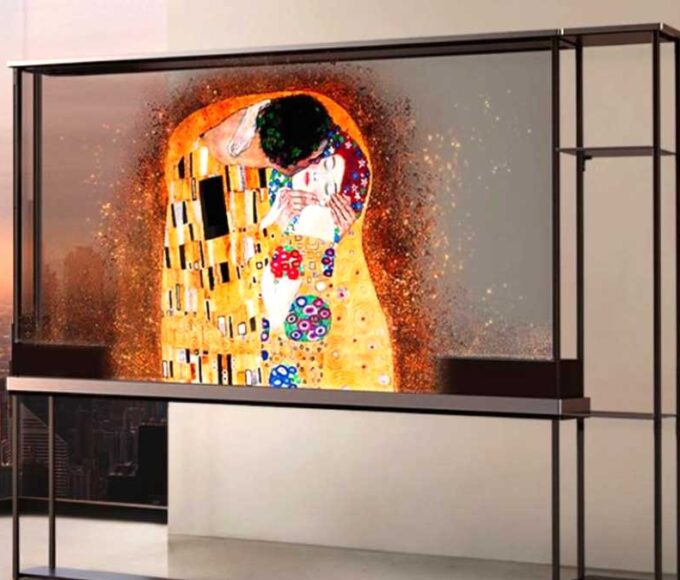- Home
- Billionaires
- Investing Newsletters
- 193CC 1000
- Article Layout 2
- Article Layout 3
- Article Layout 4
- Article Layout 5
- Article Layout 6
- Article Layout 7
- Article Layout 8
- Article Layout 9
- Article Layout 10
- Article Layout 11
- Article Layout 12
- Article Layout 13
- Article Layout 14
- Article Sidebar
- Post Format
- pages
- Archive Layouts
- Post Gallery
- Post Video Background
- Post Review
- Sponsored Post
- Leadership
- Business
- Money
- Small Business
- Innovation
- Shop
Recent Posts
Logitech MX Creative Console: A Game Changer for Creatives

Logitech has introduced a new peripheral designed specifically for creative professionals: the Logitech MX Creative Console. This innovative device combines a customizable keypad with a dedicated dial, building on the popular concept established by Elgato’s Stream Deck while offering unique features that set it apart. After testing an early version of the console for two weeks, here’s my detailed evaluation of its capabilities and overall performance.
At the heart of the MX Creative Console is its keypad, which is undoubtedly its standout feature. Users familiar with Stream Decks or the more recent Loupedeck consoles, a company acquired by Logitech last year, will recognize the layout and functionality immediately. The keypad consists of nine customizable buttons, each accompanied by a small display. However, it’s worth noting that there’s actually one large display divided into nine sections, designed to give the appearance that each button has its individual screen. These buttons serve as shortcuts for various functions in popular applications, with a particular emphasis on Adobe’s Creative Suite, including Photoshop, Lightroom Classic, and Illustrator. Logitech has collaborated closely with Adobe to develop a series of profiles for these applications, offering a plethora of useful shortcuts that can greatly enhance workflow efficiency. For instance, the Photoshop Retouch profile includes quick access to tools like the Remove tool, Dodge and Burn, the Lasso, and the Magic Wand, among others. This setup minimizes the need to navigate through complex menus or memorize keyboard shortcuts, allowing users to simply press a button on the console instead.
One of the advantages of the MX Creative Console is that even less common functions in Adobe apps are accessible via the pre-configured profiles. Users can easily rearrange these functions using Logitech’s software. Moreover, if there’s a function that isn’t included in the presets but has a keyboard shortcut, users can create their own. This feature is particularly beneficial for those who are new to Adobe software and may not yet have a firm grasp of the keyboard shortcuts. While the keypad has only nine customizable buttons—fewer than the regular Stream Deck (which offers 15) or the Stream Deck XL (32)—Logitech has included two page buttons, allowing for easy access to additional functions without hassle. Despite the extensive support for the major Adobe applications, the current offerings in Logitech’s store are somewhat limited. Users can find pre-packed profiles for apps like Spotify Premium and Zoom, but there isn’t a wide selection available at launch. Until Logitech expands its app support, users will need to create their own shortcuts using the Logi Options+ app. While this is relatively simple, the customization options for icon design are somewhat lacking, resulting in a uniform appearance that may not suit everyone’s tastes.
The second component of the MX Creative Console is the dial, which is intended to work seamlessly with the keypad. For example, if you select the burn tool in Photoshop, pressing the “size” button allows you to adjust the brush size using the dial. While this feature has potential, it was not always effective during my testing. In particular, I encountered issues with the healing brush where the brush size did not change, which could be due to the pre-release software I was testing. In addition to the main dial, there is a second scroll dial on the unit, functioning similarly to a mouse scroll wheel. This dial allows users to zoom in and out of images or scroll through lengthy web pages. The device also features buttons on the dial; the top two are configured for undo and redo, which is helpful for correcting mistakes in creative applications. The bottom-right button opens the Actions Ring, a software overlay that enables users to modify various parameters in their active application.
Taking Photoshop as an example, if you’re in the midst of editing a photo, pressing the Actions Ring button brings up a circular interface displaying icons for controls like contrast, brightness, or vibrance. However, users must switch their hand from the dial to the mouse to select the desired icon, and then back to the dial to adjust the settings. This process can feel cumbersome and overly complicated, especially when many of these functions are more efficiently managed through a mouse or keyboard shortcuts. The overall experience with the dial can be frustrating, as it often adds more complexity than convenience, making it feel like an unnecessary addition to the workflow.
The complete package of the MX Creative Console, which includes both the keypad and the dial, is priced at $199/£199. This price is made more appealing by a three-month voucher for Adobe’s entire Creative Suite, valued at over $150, which is available for both new and existing subscribers. This offer enhances the device’s value, particularly for users who frequently utilize Adobe Creative Cloud applications and struggle with an array of keyboard shortcuts. For those heavily invested in the Adobe ecosystem, the MX Creative Console could prove to be an invaluable tool that streamlines the creative process. However, for users who do not primarily work with Adobe software, the value proposition becomes less clear. The limited app support and the existence of larger, more affordable alternatives like the Stream Deck make it a tougher sell for streamers or those seeking a versatile control deck.
Overall, the Logitech MX Creative Console presents an interesting option for creative professionals, combining familiar functionality with some unique features. Set to launch in mid-October for both Windows and Mac, it will be intriguing to see how Logitech expands its app support and refines the device based on user feedback in the future.
Recent Posts
Categories
- 193cc Digital Assets2
- 5G1
- Aerospace & Defense46
- AI37
- Arts3
- Banking & Insurance11
- Big Data3
- Billionaires449
- Boats & Planes1
- Business328
- Careers13
- Cars & Bikes76
- CEO Network1
- CFO Network17
- CHRO Network1
- CIO Network1
- Cloud10
- CMO Network18
- Commercial Real Estate7
- Consultant1
- Consumer Tech180
- CxO1
- Cybersecurity68
- Dining1
- Diversity, Equity & Inclusion4
- Education7
- Energy8
- Enterprise Tech29
- Events11
- Fintech1
- Food & Drink2
- Franchises1
- Freelance1
- Future Of Work2
- Games141
- GIG1
- Healthcare78
- Hollywood & Entertainment186
- Houses1
- Innovation42
- Investing2
- Investing Newsletters4
- Leadership65
- Lifestyle11
- Manufacturing1
- Markets20
- Media193
- Mobile phone1
- Money13
- Personal Finance2
- Policy567
- Real Estate1
- Research6
- Retail1
- Retirement1
- Small Business1
- SportsMoney33
- Style & Beauty1
- Success Income1
- Taxes2
- Travel10
- Uncategorized8
- Vices1
- Watches & Jewelry2
- world's billionaires418
Related Articles
LG’s 77-Inch Transparent OLED TV Now Available for $59,999
At CES 2024, LG unveiled one of the most mind-blowing innovations in...
By 193cc Agency CouncilDecember 20, 2024Iqunix Magi 65: Stylish and Compact Mechanical Keyboard
The Iqunix Magi 65 series offers a refreshing take on mechanical keyboards,...
By 193cc Agency CouncilDecember 20, 2024Amazon Recalls Charmast Power Banks Over Fire Risks
Nearly half a million power bank chargers sold exclusively on Amazon over...
By 193cc Agency CouncilDecember 20, 2024Book Review: Unlocking AI’s Power in Everyday Life
In a world where artificial intelligence (AI) frequently makes headlines in the...
By 193cc Agency CouncilDecember 16, 2024















Leave a comment